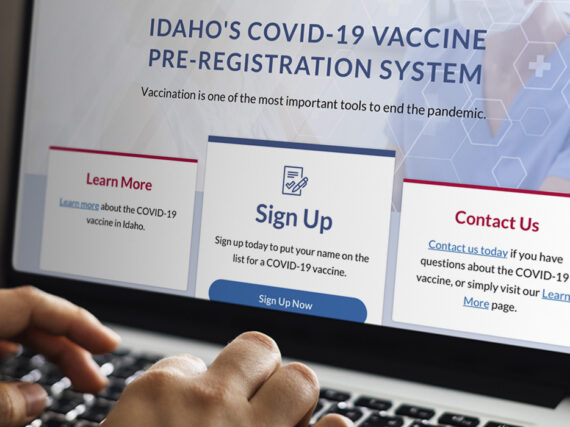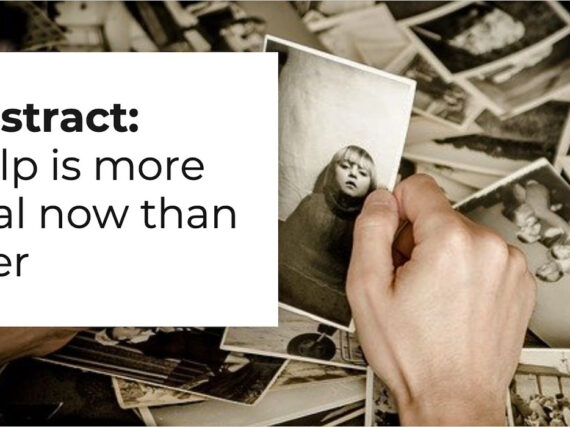In the face of Covid-19’s economic impact, we’ve been looking to social sector organizations in our home state for strategies that can help in Maine and other less-populated states around the country.
The Maine Development Foundation (MDF) is one such organization behind a number of grassroots initiatives for economic stimulus and recovery. Yellow Light Breen, the foundation’s CEO, has an ear to the ground for programs that most effectively support the needs of his rural state.
Help is certainly needed, with Maine ranked as one of the most vulnerable states in the crisis. According to Oxford Economics, a global economic analysis firm, this rank is due to a high percentage of older residents, and reliance on hospitality, tourism, retail, self employment, and small businesses, as reported by the Portland Press Herald.
When asked what strategies will be most effective to face these challenges, Breen is quick to respond with three clear objectives.
“We’re continuing to stay the course and have a vision even while we’re taking care of people and the immediacy of their needs,” he says. “That means we’re still focused on long-term investments, not pretending that we can make dramatic overnight progress.”
Breen believes the following investments can help smaller states stay the course to economic stability.
1. Support leadership training
“We need to keep building the capacity of leaders across the state in multiple sectors and geographies so they understand the economy, contribute to its growth and innovation, and gain skills to support collaboration,” Breen says.
“How do you create a situation that allows leaders to be mind blown [by a business] when they can’t visit it?” he asks. Part of what Breen wants to support now is the development of immersive learning experiences to replicate in-person leadership trainings. In addition to conventional online learning, he dreams of finding ways to use virtual and augmented reality to bring trainings into businesses and locations across the state.
2. Support Main Street
“The retailers, restaurants, and arts and cultural organizations that make up historic downtowns are under the same pressures as everyone else right now,” Breen says. “But add in the fact that arts and culture are intrinsically experiential and restaurants are in a dense downtown area with crowd control issues.”
Initiated in 1999, nearly 30 downtowns are now collaborating with MDF on various efforts to revitalize their communities through the Maine Downtown Center program. The Main Street Approach is a nationally proven model for transforming historic downtowns by promoting arts, culture, food, and community-based events that are critical to the DNA of a robust economy.
In Zoom meetings with communities across Maine, MDF asks what they are experiencing during the closures, how they are processing, what they need to know from one another, and who they need to collaborate with. MDF then connects them with federal policy makers and state agencies, and helps them share best practices with one another.
“They’re asking, how do we innovate?” Breen says. “They are tiny little businesses, so a lot of it will have to be collective action. Some communities are already experimenting with closing off streets so they can expand outdoor dining experiences.”
3. Support adult learners
“Of the thousands of Maine workers who are dislocated right now, many may still be dislocated from employment this fall and next year,” Breen notes. “Giving them the opportunity to go back to school while they’re laid off and get ready for the next economy is crucial.”
MDF began supporting adult learners with what are now known as MaineSpark and Maine Adult Promise in 2014. The initiative is even more vital today, as thousands have lost jobs that may never be replaced and now need new skills to find employment.
In How to rebuild and reimagine jobs amid the coronavirus crisis, the global management consulting firm McKinsey also emphasizes the importance of creating “new mechanisms to help people whose jobs are at risk redeploy into occupations in which labor demand still outstrips supply—and rapidly build the skills needed for their new roles.”
The McKinsey article notes that while the hospitality, food service, and wholesale/retail industries are the hardest hit, job opportunities have emerged in the grocery, call-center, and information- and communication-technology sectors. The key lies in helping workers redirect for long-term stability.
“We were already in the middle of a pivot recognizing that most people who need education and training are 22-62, not 18-22,” Breen says. “The necessity [for new skills] is now here. Before, people were caught in a difficult Hobson’s choice. Do I give up an $18 or $20 an hour job to up skill?”
The goal of Maine Adult Promise and its online Hub and Navigator Network is to ensure people are economically supported and their households can survive while they get much needed education.
“By bringing together hundreds of people who support systems for these adults, it not only steers them to the right educational programs, but helps when life gets in the way,” Breen says.
Breen adds that while the initial impetus was workforce shortages, the need for worker education remains the same as it shifts to sustaining employment. From GovWebwork’s perspective, we have also seen this shift with Minnesota DEED’s CareerForce, a workforce development application supported by our team.
“A three-year grant from the Lumina Foundation supported the first couple of years of work,” Breen says of the Maine Spark program. “Now we’re in active development mode for organic local funders to sustain what Lumina helped build.”
Collaboration and funding
Funding is the linchpin for much of this work. One key partner is the Maine Community Foundation (MCF), whose mission is to work with donors and other partners to improve the quality of life for all Maine people.
“MCF has done so much work in these areas, not just through us, but directly in terms of emergency relief and scholarships for adult learners,” Breen says. They’re also a partner in the Maine Downtown Center and deliver grants and technical assistance programs to those communities.
MCF and MDF recently selected the Maine towns of Lisbon, Monson, and Skowhegan for $70,000 in grants and training from the National Main Street Center’s Community Entrepreneurship Program, as reported in Maine Biz.
Up next week: We talk with Maine Community Foundation’s vice president of philanthropy, Laura Young, about ways to optimize funding to support initiatives such as those outlined here by the Maine Development Foundation.
Learn more
- Covid Resources: From Maine Development Foundation
- Help Maine Street: Support more than 120k local businesses in all 50 states by ordering online, buying gift cards, or donating directly to provide critical cash support during the COVID-19 crisis
- We’re Not in Kansas Anymore: Mobile tools and workforce are changing how rural areas engage with government, by Ravi Jackson
- Putting Together the Labor Force Puzzle: How Minnesota’s new CareerForce site encourages workforce growth, by GWW Staff
- Contact us to learn more about workforce applications







